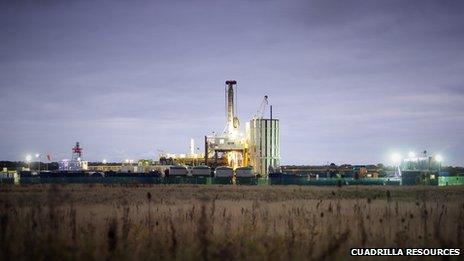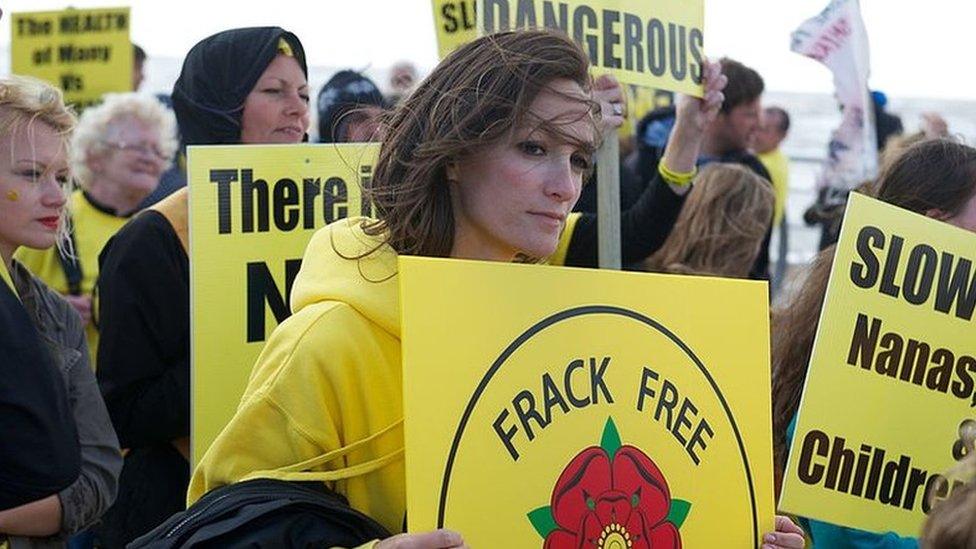Shale gas: George Osborne proposes north of England fund
- Published

Mr Osborne said holding revenues in a fund was an "exciting idea"
Shale gas extraction revenues could be held in a "sovereign wealth fund" for the north of England, the chancellor has said.
George Osborne told BBC Radio 4's Today programme the fund would be a way of "making sure money is not squandered on day-to-day spending".
Friends of the Earth's Helen Rimmer said it was "a desperate attempt to win over communities".
The idea will be discussed in the House of Lords on Monday.
Possible sites for the extraction of shale gas have been identified across the north of England, with test drilling licences granted in Lancashire, Cheshire, Merseyside and Greater Manchester.
The British Geological Survey estimates there could be 1,300 trillion cubic feet of shale gas there and Cuadrilla, the region's major player, has said reserves in Lancashire alone could be worth £140bn.
The gas would be extracted by fracking - or hydraulic fracturing - a technique in which water and chemicals are pumped into shale rock at high pressure.
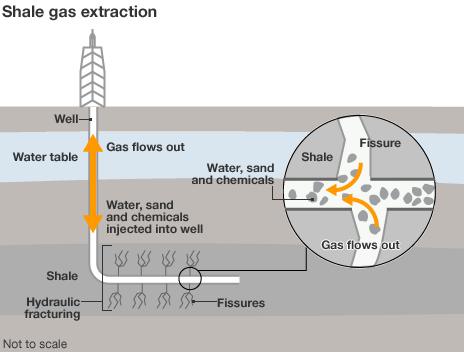
Numerous anti-fracking groups have formed and protests have been staged at several sites over fears of earthquakes, water pollution and environmental damage.
Mr Osborne said holding revenues in a fund was an "exciting idea".
"You could create a sovereign wealth fund for the money that comes from the shale gas that we're going to be pulling out of the ground, particularly in the north of England.
"That's a way of making sure this money is not squandered on day-to-day spending but invested in the long-term economic health of the north to create jobs and investment there."
Ms Rimmer said the economic benefits of shale gas "have been vastly over-hyped... and communities will not be bought off with cheap bribes".
"A far better solution for the northern economy is to invest in renewables and energy efficiency which could create thousands of new jobs for the region and tackle climate change at the same time."
- Published7 November 2014
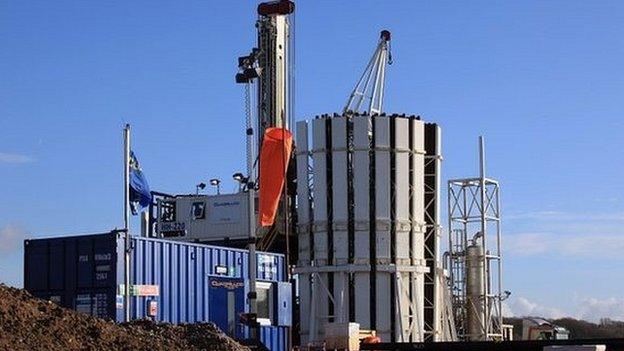
- Published24 February 2014
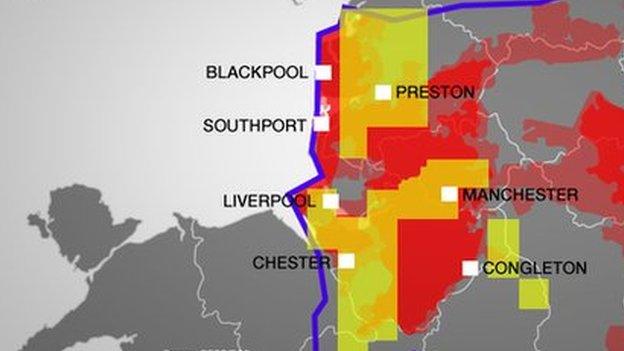
- Published16 July 2013
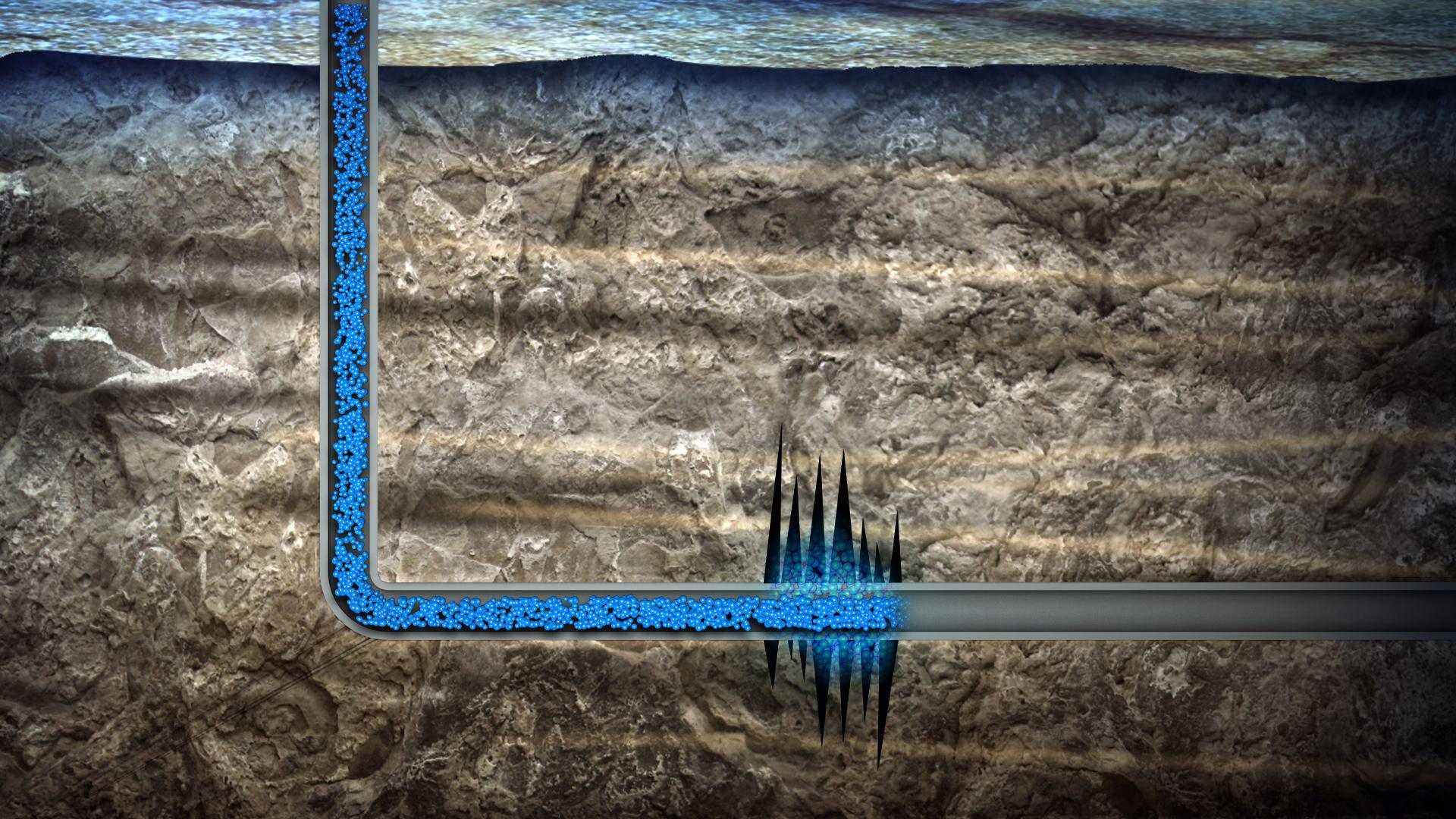
- Published13 December 2012
